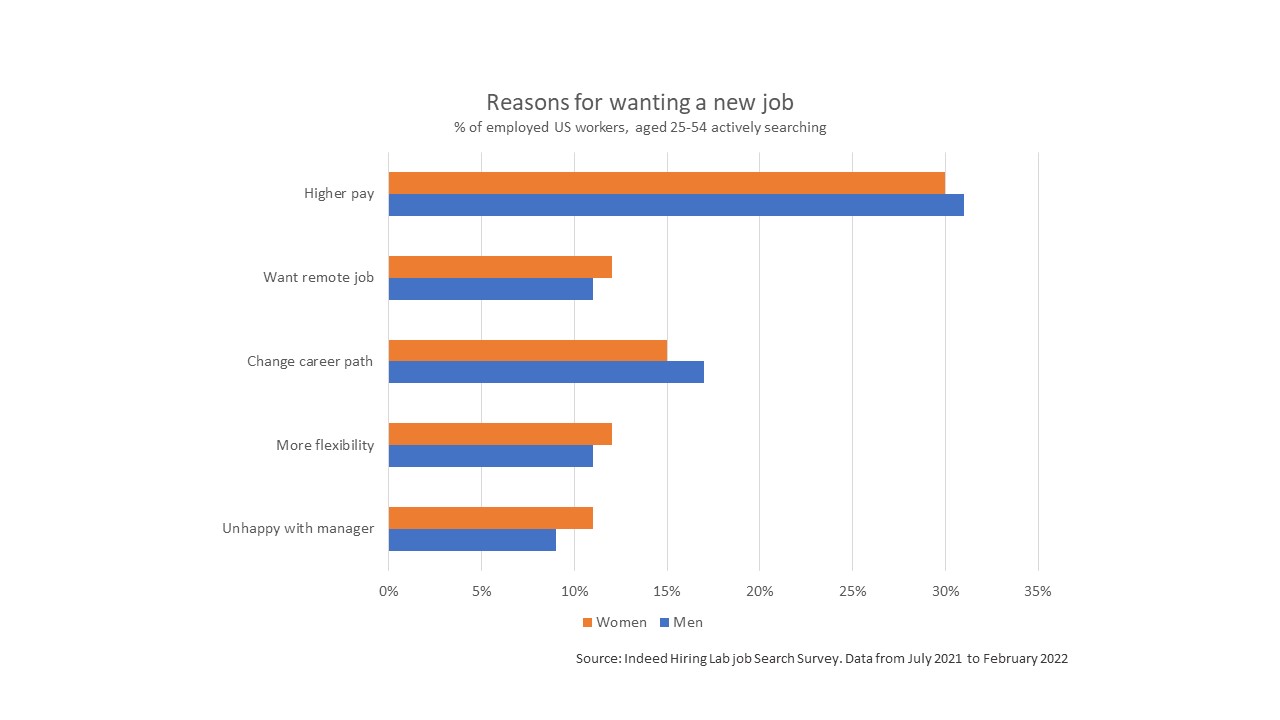
COVID-19 upended the way we live our everyday lives, but it also fundamentally changed the way we work.
To comply with safety measures, the pandemic enforced a worldwide shift to remote working. These extraordinary circumstances meant that businesses had to rethink their business models and employees had to rapidly evolve their skillsets practically overnight.
What initially started as an emergency response to the pandemic is now becoming a standard business practice. As we emerge into a post-pandemic normal, many businesses are now embracing the idea of working from home if their line of work allows them to do so. And as our working habits have evolved, so have jobseeker priorities. In fact, searches for remote or flexible working are still proving to reach historic highs on employment websites, according to Indeed & Glassdoor's Hiring and Workplace Trends Report 2023.
Online searches for "remote working" show no signs of slowing down.
Research has indicated that organisations have perceived a wealth of benefits for employees including a better work-life balance, increased motivation, and more autonomy. And the advantages are not only limited to employees - it is mutually beneficial for businesses too.
Here are some advantages that prove flexible working is a worthwhile endeavour for your business.
More appealing job offer for candidates
Reviewing what you can offer to your future and current employees will ensure your company has a competitive advantage. Home working is a great incentive for new talent, with as many as nine in ten jobseekers say hybrid working is now as important as financial benefits. Employers that offer flexibility will have first pick of the best recruits, since workers will increasingly look for jobs that offer flexibility.
Increased productivity
Remote working initially sparked concerns among employers that there would be a drop in productivity. Yet a recent study from Stanford revealed that productivity is increased by around 13% when working from home. This can be attributed to a quieter more convenient working environment that facilitates more focused work alongside fewer sick days.
Companies that support working from home or a hybrid working model can expect a much happier workforce, meaning greater productivity at work.
Improved work-life balance
In today's world, it is difficult to strike a good work-life balance. When commute time and sleep are taken into account, working eight hours or more a day leaves little time for socialising. As many have to balance parenting responsibilities, educational opportunities, or other commitments around their jobs, it’s no wonder that jobseekers are gravitating towards work that lets them stay at home.
Allowing for more flexible working conditions demonstrates that your business acknowledges employees have lives outside of the office. And by eliminating lengthy commutes, employees get to spend more time with their loved ones which they will undoubtedly appreciate.
Eliminates geographical barriers
Not only does remote working improve staff wellbeing, it allows the recruitment process to be more geographically disperse. By eliminating commute times, employers can tap into a far greater pool of talent available.
Better retention
Working remotely leads to less employee turnover because workers who are well-rested and have a great work-life balance are far less likely to leave your company.

Considering the current employee’s market, workers aren't afraid to jump ship in search of better opportunities. With Forbes reporting that 54% of employees say they would change jobs for one that offered them more flexibility, employers who don’t offer flexible working could lose their employees to competitors.
Lower infrastructure costs
Remote working arrangements reduce real estate costs and other expenses, reducing operating costs significantly. A report by Consultancy showed that remote working can cut operational costs by one third, giving you a bigger budget to build the bottom line of your business.
Conclusion
The stigma of thinking that remote working leads to time-wasting and lack of productivity is certainly outdated. Flexible working has shaped the employment landscape for the better, and we are expecting this to become a permanent business model for many going into 2023.
It goes without saying that a hybrid model of work can only work for certain jobs, but if your company has the means to allow employees to work from home, it should consider doing so. If remote working for your business isn’t feasible, offering more flexibility around working hours and shift patterns could also be an option. Choosing not to offer flexible working could lose your company suitable candidates and current employees. And what’s more, offering it could be the winning edge over your competitors.
Flexible working is an approach that we have always championed at Gibson Watts, and we’re proud to offer a variety of flexible working options to our staff.
Do you want to join a fast-growing organisation with a focus on sustainability, and building world-leading teams? If so, get in touch with a member of our team today.
If you are looking to recruit tomorrow’s leaders today, you can contact us via our website.

